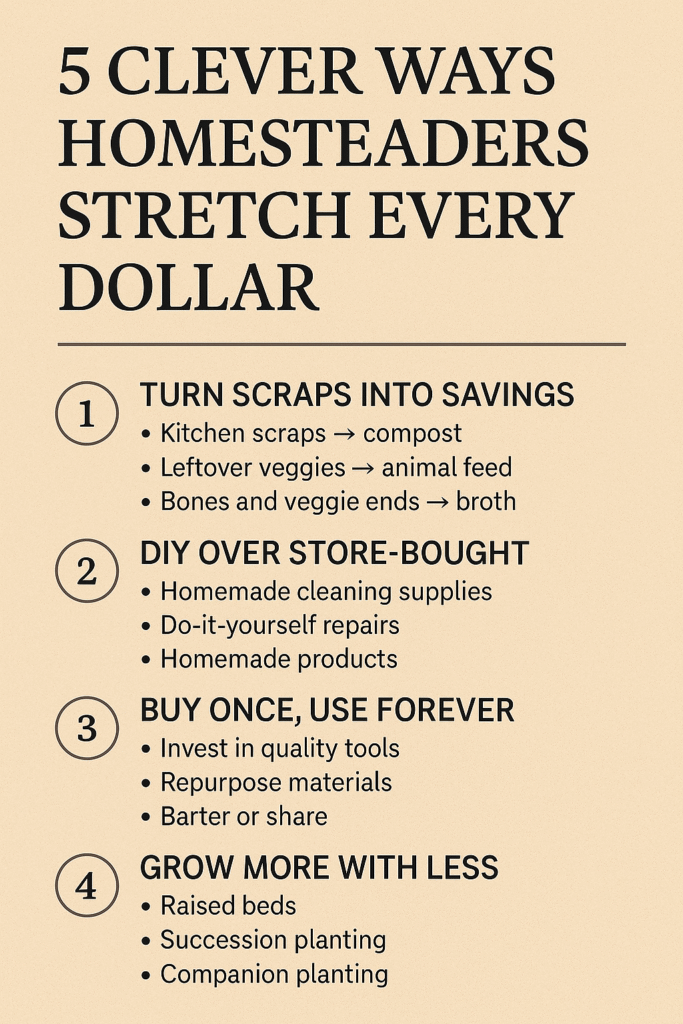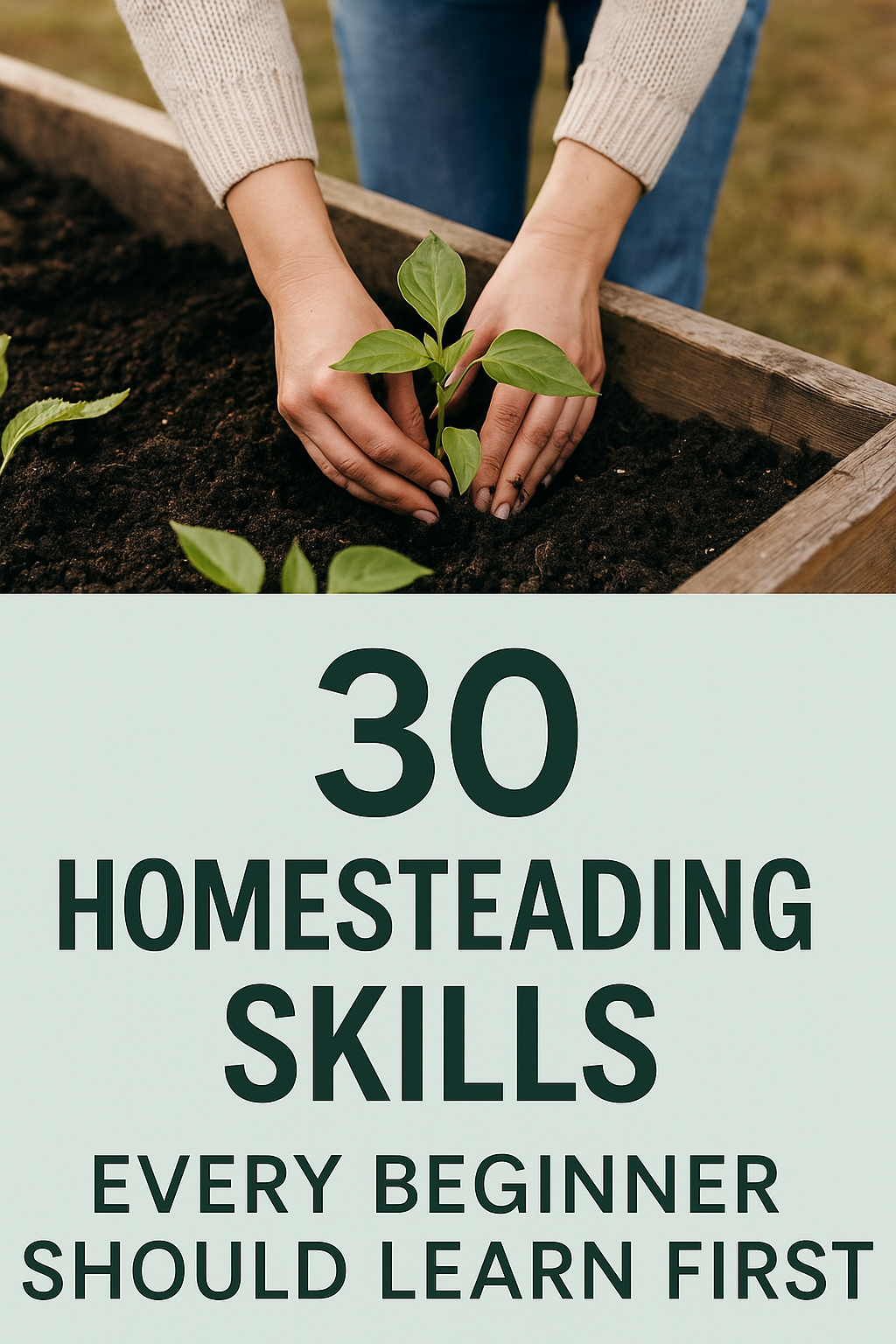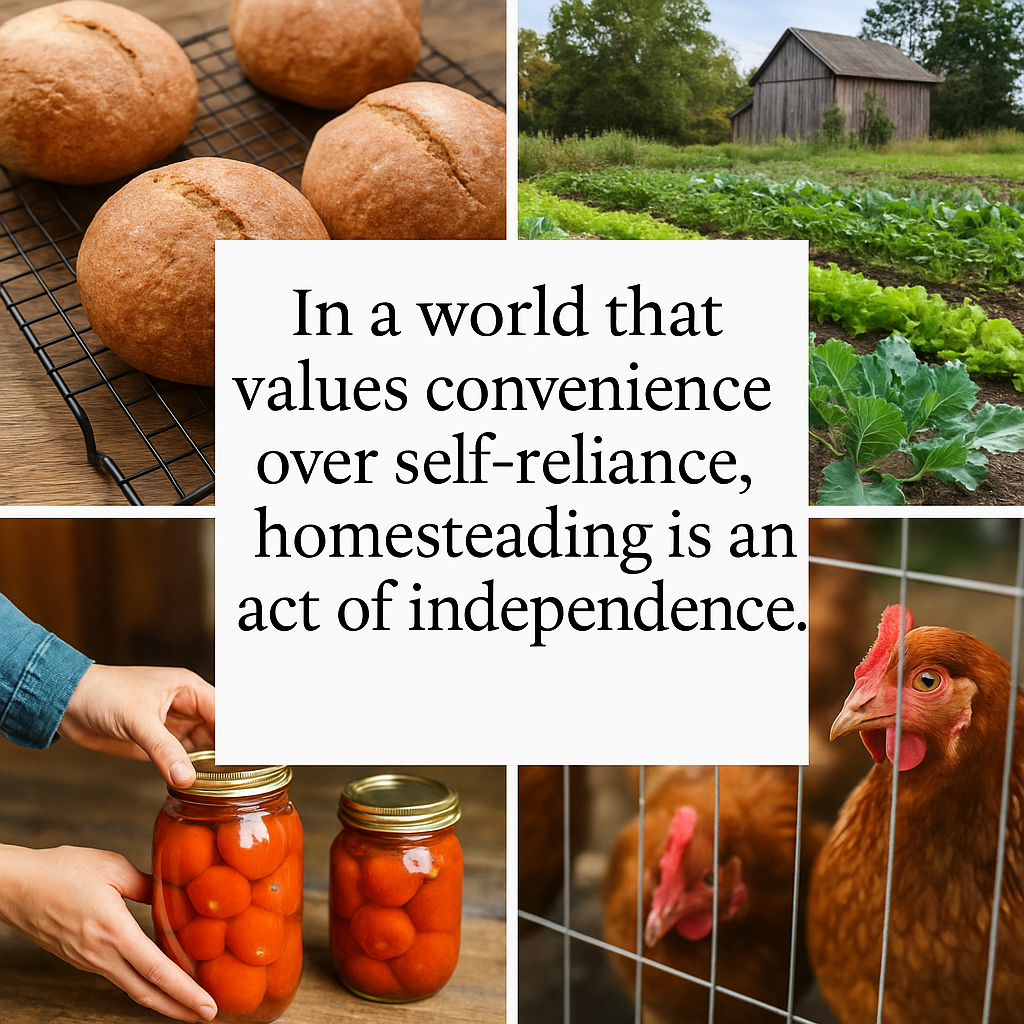Living Smart on the Homestead

One of the biggest myths about homesteading is that it’s expensive. Many people imagine that to “do it right” you need acres of land, barns full of animals, and a long list of pricey tools and supplies. The truth? Some of the most successful homesteaders thrive not because they spend more, but because they learn how to stretch every dollar.
Homesteading is about resourcefulness, creativity, and learning to make the most out of what you already have. Whether you’re brand new or years into the journey, these five clever money-saving strategies will help you live smarter and keep more cash in your pocket.
1. Turn Scraps Into Savings
On a homestead, nothing goes to waste — not even scraps. What most people throw away, homesteaders see as resources:
- Kitchen scraps → compost: Banana peels, eggshells, and coffee grounds become rich compost that feeds your garden for free.
- Leftover veggies → animal feed: Chickens, rabbits, and goats happily eat many of your food leftovers. That’s one less scoop of store-bought feed.
- Bones and veggie ends → broth: Don’t toss them. Simmer them into a nourishing broth that stretches meals even further.
This “waste nothing” mindset saves money while enriching your soil, animals, and meals.
Email Me This List to Save for Later!
Enter your email and I’ll send you this list to your inbox. Plus you’ll get our latest content from us every week!
2. DIY Over Store-Bought
A clever homesteader knows that skills are often more valuable than dollars. Instead of running to the store, consider what you can make yourself:
- Homemade cleaning supplies: Vinegar, baking soda, and a few drops of essential oil create powerful (and cheap) cleaners.
- Do-it-yourself repairs: A little YouTube learning goes a long way for fixing fences, mending clothes, or patching a leaky roof.
- Homemade products: From soaps and candles to herbal remedies, DIY often costs pennies compared to store prices.
Every skill you build reduces dependence on the store and keeps money in your wallet.
3. Buy Once, Use Forever
Sometimes saving money means spending smart up front. Low-quality tools may be cheap, but they break quickly — costing you more in the long run. The smarter way?
- Invest in quality tools that last decades. Think cast iron pans, hand tools, or pressure canners that can be passed down.
- Repurpose materials: Wooden pallets become raised beds, glass jars store bulk goods, old barrels become rain catchers.
- Barter or share: Don’t buy every tool you’ll only use once. Swap with a neighbor or borrow from your community.
Think of each purchase as a long-term investment — not a temporary fix.
4. Grow More With Less
You don’t need a massive garden to feed your family — just a smart one. Clever homesteaders maximize space and save money with these strategies:
- Raised beds: More efficient than sprawling rows.
- Succession planting: Replant as soon as you harvest to keep food growing.
- Companion planting: Pair plants together for natural pest control and better yields.
- Save seeds: One season of beans or tomatoes can provide seeds for the next — no need to keep buying packets.
Start small, grow wisely, and your food bill will shrink faster than you think.
5. Share, Swap & Barter
Money isn’t the only way to “buy” things on a homestead. Bartering and sharing have been staples of rural living for generations:
- Trade extra eggs for a neighbor’s zucchini.
- Swap homemade bread for a friend’s honey.
- Offer labor (like building a coop) in exchange for borrowing tools.
Local farmers markets, Facebook groups, and community swaps are goldmines for these kinds of exchanges. By leaning into community, you multiply what you have without spending more.
The Homesteader’s Money Mindset
Stretching every dollar isn’t about deprivation — it’s about creativity. By rethinking scraps, building skills, investing in lasting tools, maximizing your garden, and leaning into community, you’ll discover that homesteading can actually be one of the smartest financial decisions you’ll ever make.
Homesteading isn’t about how much money you spend — it’s about how wisely you use what you already have.
👉 Which of these clever tips will you try first?


